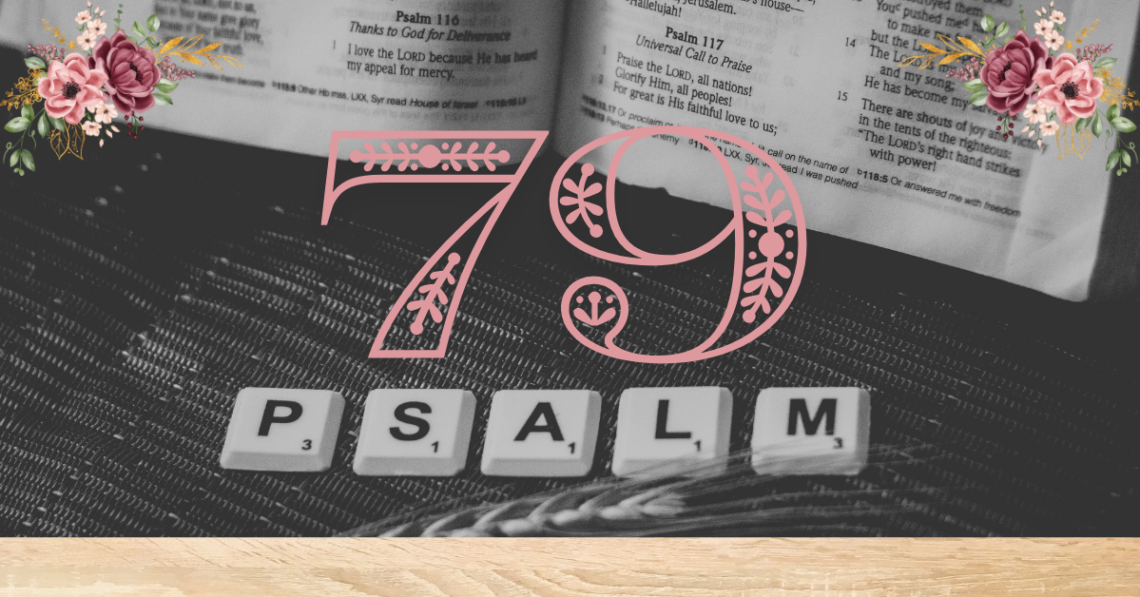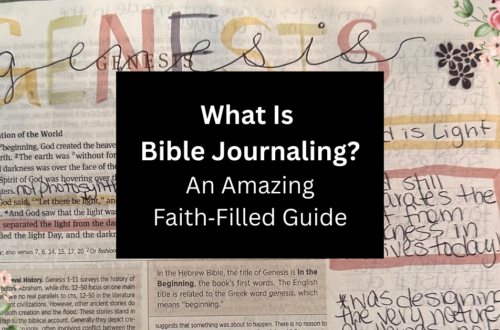Psalm 79 is a lament psalm attributed to Asaph, where the psalmist calls upon God to have mercy on Israel in the face of devastating destruction. The psalm reflects the sorrow and anguish experienced by the people of Israel after their city, Jerusalem, was ravaged by foreign enemies. The psalmist pleads for God’s intervention and restoration, acknowledging Israel’s sins but asking for God’s mercy to deliver them from their plight.
Background of Psalm 79
Psalm 79 was likely written after the fall of Jerusalem to the Babylonians in 586 B.C., a time of national crisis for Israel. The destruction of the city and the desecration of the temple left the people broken and devastated. The psalmist mourns the atrocities committed against Israel, including the killing of the people, the desecration of holy places, and the mockery of God’s name by the enemies. The psalm serves as both a plea for divine justice and a request for mercy.
What Does Psalm 79 Mean?
Psalm 79 is a prayer for mercy and deliverance in the midst of Israel’s suffering. The psalm is structured around a series of requests, beginning with the plea for God to act, followed by a recounting of Israel’s suffering, and ending with a petition for restoration and praise.
- Verses 1–4: The psalmist laments the destruction of Jerusalem, calling out to God for mercy.
- Verses 5–7: The psalmist asks God to act swiftly and justly, acknowledging the sins of the people but calling for divine intervention.
- Verses 8–12: The psalmist appeals to God’s compassion, requesting forgiveness and justice for the nations that have wronged Israel.
- Verse 13: The psalmist closes with a statement of hope, affirming that Israel will continue to praise God for His deliverance.
Verse Mapping Psalm 79:1
“God, the nations have invaded Your inheritance, desecrated Your holy temple, and made Jerusalem a ruin.” (CSB)
- Word Study
- Nations – Refers to the foreign nations that have attacked and invaded Israel, often used to represent hostile powers.
- Inheritance – Refers to the land promised to Israel by God, a sacred possession given by God.
- Desecrated – To profane or defile something sacred, indicating the severe dishonor of God’s temple by the enemy.
- Holy temple – The place of God’s presence, the temple in Jerusalem, which was the center of worship and sacrifice.
- Cross-References
- Psalm 74:3 – “Look at the ruins of the sanctuary.”
- Lamentations 1:10 – “The enemy has spread his hands over all her precious things.”
- 2 Chronicles 36:19 – “They burned the house of God, broke down the wall of Jerusalem…”
- Paraphrase God, the foreign nations have invaded Your promised land, defiled Your sacred temple, and reduced Jerusalem to rubble.
- Application When God’s people face hardship and suffering due to the actions of others, we can bring our pain and distress to Him in prayer, asking for His intervention.
How Can We Apply Psalm 79 Today?
- Cry Out to God in Times of Suffering Just as the psalmist cries out to God in the face of destruction, we are encouraged to bring our grief, pain, and sorrow before God. He listens to our cries and responds with mercy.
- Acknowledge Our Sins The psalmist recognizes Israel’s sin, which contributed to their suffering. It’s important for us to confess our sins before God, recognizing how our actions may have led to difficult situations.
- Plead for God’s Mercy and Justice In our prayers, we can ask God for His mercy in the face of our suffering and for justice in the world. God is compassionate, and He will respond to the cries of His people.
- Trust in God’s Restoration Despite the destruction of Jerusalem, the psalm ends with hope for restoration. In the same way, we are called to trust in God’s ability to restore us, even in the darkest of circumstances.
- Praise God for His Deliverance As the psalmist ends with a vow to praise God, we are reminded that, no matter the circumstances, we can always lift up our voices in praise for God’s goodness and faithfulness.
Reflection Questions
- What is a time in your life when you experienced destruction or hardship? How did you turn to God in that time?
- Are there areas in your life where you need to acknowledge your sin before God?
- How can you trust in God’s mercy and justice when facing hardship?
- In what ways can you praise God, even in the midst of difficult circumstances?
A Closing Prayer
Lord, I cry out to You in times of distress, trusting in Your mercy and justice. Please forgive us for our sins and heal the brokenness in our lives. May Your faithfulness and restoration bring us hope, and may we always praise You, knowing that You are our deliverer. Amen.
Final Thoughts
Psalm 79 teaches us how to approach God in times of destruction and suffering. It reminds us to acknowledge our sins, plead for mercy, and trust in God’s justice and restoration. Even in the darkest times, we can hope in God’s deliverance and praise Him for His faithfulness.





